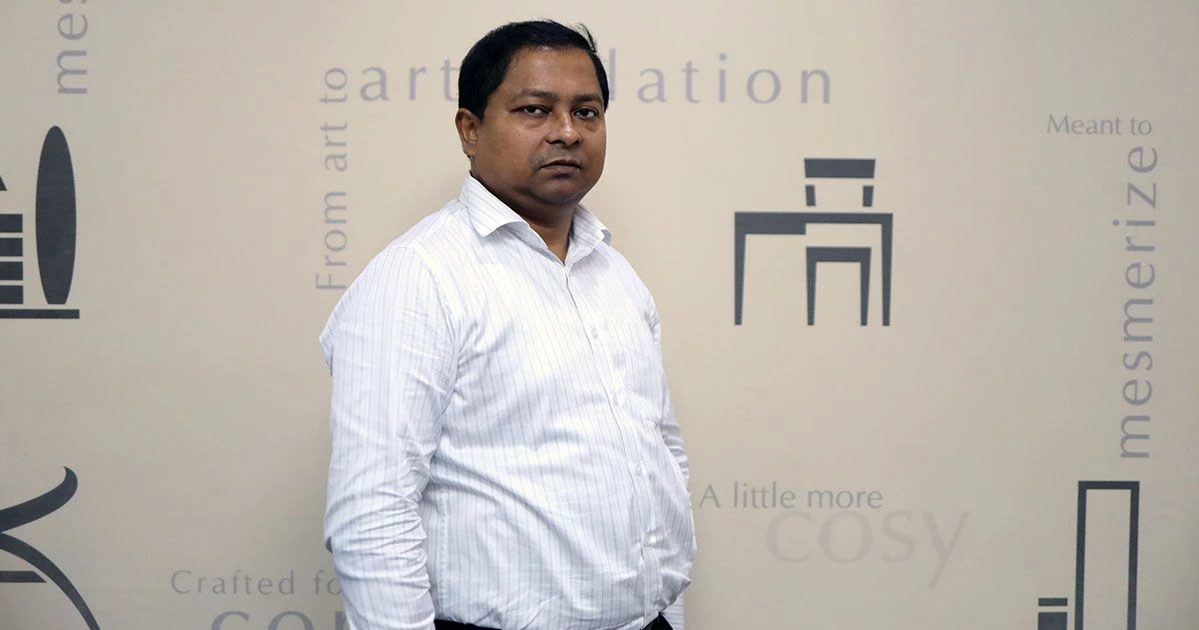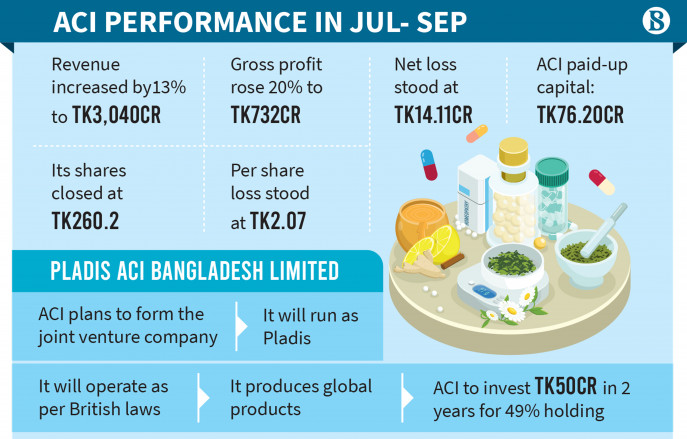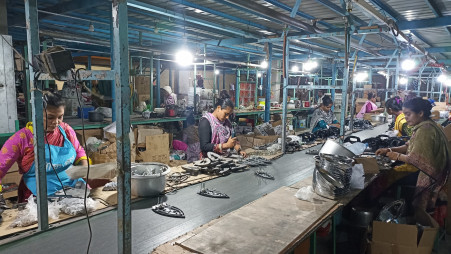Local brands dominate kitchenware market
Manufacturers seek withdrawal of import duty on raw materials
YASIR WARDAD
The import of kitchenware has been shrinking gradually in the country as local companies have captured a major share of the domestic market.
Local manufacturers are now steadily expanding their kitchenware lines such as pressure cooker, rice cooker, non-sticky frying pan and gas-burner, reducing dependence on import of such items.
Some companies even have been exporting kitchenware after meeting the domestic demand, said insiders.
Rising income of the booming middle class has greatly contributed to the modernization of kitchens over the last two decades.
This upgrade has helped make a Tk 60 billion crockery market in the country over this period with a 10-12 per cent growth rate year on year, according to the Bangladesh Crockery Merchants Association (BCMA).
And kitchenware now account for more than 50 per cent of the crockery market, it said.
According to the BCMA, 2.5 million units of gas-burner, 4.0 million cookers and 2.0 million units of non-sticky frying pan were sold in 2017.
Thirty-five Bangladeshi companies, including Kiam, HAMKO, RFL, Walton, Royalex Metal, Delhi Aluminum and Sharif Melamine, have been manufacturing such cookware in their plants.
Local brands have grabbed the crockery shelf, replacing imported brands like Prestige, Hawkins, Bajaj, Butterfly or Premier, according to crockery shop owners in the city.
Pressure cookers and rice cookers of local brands, suitable both for induction and gas cookers, are priced at Tk 850 (2.0 litres, aluminum) to Tk 3600 (5.0 litres, stainless steel).
The prices of non-sticky frying pans range between Tk 300 (16 cm) and Tk 2500 (32 cm) while local auto-stoves and gas-burners are selling at Tk 1200 to Tk 4500.
In the last one decade, the companies accounted for more than 70 per cent of cookware sales in the country.
Kiam Metal Industries Ltd, a sister concern of BRB Group, first started manufacturing pressure cookers in the country at their Kushtia plant in 1994.
The company is now dominating the cookware market with 'Kiam' brand products.
Md Ashraful Alam, general manager of the company, said: "Crockery has become a vital part of every dining room not only for its utility but also it can lend grandeur even to a little dwelling".
He said local companies earlier made only traditional cookware like saucepan, dish, frying pan (korai), rice bowls and curry bowls.
"We were once totally dependent on import of pressure cooker, auto-stove and so on," he said.
"Now many of us are rather exporting such items after meeting domestic demand," he added.
His company is going to start producing induction cooker from next year, he said.
He suggested lowering import duty on some raw materials to encourage local factories to expand kitchenware lines such as induction cooker, rice cooker and curry cooker.
His company is now exporting 25,000 to 30,000 pieces of aluminum cooker and non-sticky frying pan to the USA, Canada, Australia, France, Malaysia, Mauritius, India and Bhutan per month.
Proprietor of Nilphamari-based Royalex Metal Industries Puja Poddar told the FE that high import duty on some raw materials is creating a barrier to manufacturing rice cooker locally.
Royalex Metal produces Noah brand pressure cookers and frying pans.
Puja said her company has been making pressure cooker and non-stick frying pan, suitable for both gas burner and induction cookers.
Her company is also exporting pressure cooker and frying pans to India and Bhutan.
She said there are 37 per cent import duty on various parts of rice and curry cookers like heating plate, thermostat, magnet and electric socket, which are not produced in the country.
The government can waive the import duty on such items for the betterment of the sector, she suggested.
Also, the government should take stern action against those resorting to under-invoicing and misdeclaration of crockery items to save the local industry, she added.
PRAN RFL director (marketing) Kamruzzaman Kamal said making the whistle and the aluminum circle of a pressure cooker in the country is a major challenge.
It takes years for local companies to produce the items, he said.
RFL is manufacturing cookers, auto-stoves, non-sticky frying pans under the brand name of Topper.
It is marketing its induction cooker under the brand name of 'Vision'.
The company is also manufacturing traditional cookware under the brand name of 'Bright'.
Another company HAMKO, better known for their battery, has been making pressure cookers, frying pans and gas burners since 2016.
Deputy Manager of HAMKO Tofayel Hossain said women now prefer pressure cookers and frying pans of local brands for their quality, competitive price and warranty.
He said his company's pressure cooker comes with a 12-year warranty.
Secretary of Bangladesh Crockery Merchants Association (BCMA) Md Ziaur Rahman told the FE that the demand for gas burners and rice cookers has been rising in the country significantly.
He said over 9.5 million pieces of cookers, stoves and frying pans were sold last year.
"Sale of kitchenware may increase by 10-12 per cent in the current calendar year," he added.
Saidpur's cookware puts footprint in global market
Today, Royalex Metal Industries exports its products to three countries, India, Bhutan and Nepal, with an annual turnover ranging from three to five lakh dollars. In the current month, the company plans to export products worth $22,000 to Bhutan.
Workers assemble products in the Royalex Metal Industries in Saidpur, Nilphamari. Royalex Metal is the only export-oriented cookware company in the country’s northern region. Photo: TBS
Until the late 1970s, there was no aluminum factory in Nilphamari, despite growing demand for aluminium products in the region. The demand was being met with products from Bogura. Recognizing the success in Bogura, a similar business started to flourish in the surrounding districts.
Royalex Metal Industries, which is part of the Noah Group, was established in Saidpur, Nilphamari, in 1978 to manufacture aluminium products. Over 32 years, it evolved into the only export-oriented cookware industry in the northern region.
Today, Royalex Metal Industries exports its products to three countries, India, Bhutan and Nepal, with an annual turnover ranging from three to five lakh dollars. In the current month, the company plans to export products worth $22,000 to Bhutan.
The transformation of the company began in 2004 when it started manufacturing steel-made pressure cookers. Subsequently, it expanded its product range to include rice cookers, gas stoves, kettles, blenders, induction stoves and non-stick products. It began exporting its products in fiscal year 2010-11.
Located near the central bus terminal of Nilphamari, adjacent to the Saidpur-Rangpur Highway, Royalex Metal Industries was established on approximately three acres of land in 1978. The company produces a wide range of kitchen products, including pots, pans, ladles, cooking pots, non-stick fry pans, casseroles and woks.
The factory in Saidpur, which initially began operating in Bogura, has its origins in the Dupchanchia upazila of Bogura. Due to convenient transportation via rail and river routes, the first aluminium industry in the area was established in 1954. About 15 establishments gradually set up operations, including the factory owned by Raju Poddar, who is now a director of Royalex Metal Industries. The family's connections in Saidpur grew as one of Raju's sisters got married there. Saidpur has always been a commercially significant area due to its good rail and road connectivity. In the 1970s, members of Raju's family recognised the extensive demand for aluminium products in the region and established an aluminium factory near the Saidpur Bus Terminal.
The company is currently run by directors Raju Poddar and Gokul Kumar Poddar, with Puja Devi Poddar, wife of Gokul Kumar Poddar, as the owner. Initially, foreign technicians were brought in to operate the factory machinery and train local technicians. However, local technicians now manage the machinery with expertise.
Royalex Metal Industries imports various raw materials, including aluminium circles, PTFE coatings, fittings, polishing materials, polishing buffs, SS circles, SS fittings, and electric rice cooker parts from India, China, and Malaysia. These raw materials are used to manufacture high-quality products.
Due to its strategic location, Saidpur plays a crucial role in the factory's operations, serving a vast market area that covers Rangpur and Dinajpur. The factory employs around 300 workers, with 40% of them being women, and 5 to 7 disabled workers.
Putul Rani, one of the employees in the factory, used to work as a tailor before but now works as a laborer in the factory. Putul, who lives in the neighbouring area of Taraganj in Saidpur, is married to Pratap, who works at a garment factory in Taraganj due to walking disabilities. Putul cannot engage in other jobs due to her foot problems. She mentioned that there are no issues regarding the working environment or payment in the factory. Working in Royalex Metal Industries brings her peace.
Another worker, Monira Khatoon, can handle a wide range of tasks related to iron production. She has been working at Royalex Metal Industries for the past 10 years. According to her, she can perform any task related to the production of electric goods there.
Her income supports her family, and the factory produces excellent quality products.
Raju Poddar explained that previously, Bangladesh used to rely heavily on imports for various kitchen items, including rice cookers, pressure cookers and blenders. However, now only 1% of these items are imported, as many local companies are manufacturing these products, he said. Some of them even export their products to Europe, Raju said, adding this has become a significant source of income for the country.
This establishment promotes products with the "Made in Bangladesh" label to increase the country's pride. Raju said the company is now utilising 25% of its capability and so there is scope for its expansion.
Some challenges
Despite its growth and potential the company faces various challenges like non-availability of uninterrupted power supply and harassment by VAT and tax officials, Raju said.
"We pay Tk10 crore to Tk12 crore in VAT to the government each year. Besides, we pay taxes amounting to at least Tk2.5 crore per annum. Despite that, some unscrupulous tax officials harass us in order to pocket some money illegally. Due to the harassment, many businessmen are considering closing their factories," he said.
Price hikes in fuel, load shedding, and other issues have also affected market competition. However, the gas pipeline has now reached Nilphamari. To enhance the local industry, gas connections need to be provided for factories based on priority. This will help the country gain an upper hand in product exports.
Akhtar Hossain Swapan, a director of the Nilphamari Chamber of Commerce and Industry, emphasizes the importance of developing Chilahati, an upazila of the district bordering India, into a full-fledged port for trade and commerce.
Additionally, converting Saidpur airport into an international airport will facilitate product exports and further transform the region into a significant industrial hub, providing employment to thousands of people.









